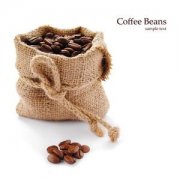Don't let caffeine affect your life.

Abstract: Wang Hai, the first person in China to crack down on counterfeiting, took Coca-Cola to court because it was not marked with "caffeine content". Caffeine is not uncommon in our daily life. In addition to drugs, coffee, tea, many soft drinks and functional drinks contain caffeine. Experts point out that adults consuming 200 milligrams of caffeine a day can lead to caffeine dependence, especially in children who are physically developing.
Wang Hai, the first person in China to crack down on counterfeiting, took Coca-Cola to court because it was not marked with "caffeine content". Caffeine is not uncommon in our daily life. In addition to drugs, coffee, tea, many soft drinks and functional drinks contain caffeine. Experts point out that adults consuming 200 milligrams of caffeine a day can lead to caffeine dependence, especially in children who are physically developing.
Caffeine is not uncommon.
Caffeine, also known as caffeine, is an alkaloid extracted from natural plants. Caffeine is not uncommon in our daily life. It is widely used in beverages as a food additive. In addition to coffee, there are many caffeinated drinks, one of which is the natural presence of caffeine in the drinks, such as cocoa and tea, and the other is adding caffeine to the drinks, such as some sodas and fruit juices.
1. Coffee
Coffee has a refreshing effect because it contains caffeine. In the United States, almost 75% of the caffeine taken comes from coffee. Generally speaking, a regular cup of instant coffee on the market contains 150 to 200 milligrams of caffeine, and a bag of instant coffee contains about 66 milligrams of caffeine.
two。 Tea
All kinds of green tea, black tea, oolong tea and so on that we often drink contain caffeine. The content of caffeine in tea is related to the method and time of brewing tea. the caffeine content of green tea ranges from 30 mg to 50 mg per cup (about 227 grams), while black tea contains an average of 47 mg per cup.
3. Soda water
Many soft drinks and energy drinks contain caffeine, and a 330 ml can of cola contains about 33 milligrams. Because some functional drinks contain caffeine and stimulate the central nervous system, it is not suitable for all people to drink functional drinks, especially for children.
4. Chocolate
There is so little caffeine in chocolate that it is often ignored. About 40 grams of milk chocolate contains the equivalent of 6 milligrams of caffeine. in addition, chocolate and coffee-flavored milk, ice cream and cheese may also contain caffeine.
5. Drugs
Many common over-the-counter drugs, such as antipyretic analgesics, cold drugs and controlled psychotropic drugs, contain caffeine.
Beware of caffeine dependence
Zhou Wen, director of the Department of Pharmacy at Qilu Hospital of Shandong University, points out that medically speaking, caffeine is a psychoactive drug that affects people's thinking, mood and behavior. Caffeine is one of the most commonly abused drugs in the world. Long-term excessive intake can lead to caffeine dependence and a series of physical and psychological adverse reactions.
Usually the caffeine content of 2-3 cups of brewed coffee can lead to overexcitement of the central nervous system. Chronic caffeine overconsumption can also cause a range of mental disorders, two of which have been identified by the American Psychiatric Association as caffeine anxiety and caffeine sleep disorders. Director Zhou pointed out that although it is almost impossible to die from drinking regular coffee, there are reports of deaths due to excessive use of caffeine pills.
Coffee is not good for refreshing.
Many people are used to skipping breakfast to go to school or work on an empty stomach and rely on a cup of coffee to keep a clear head. Many people rely on coffee and strong tea to refresh and relieve fatigue when they are tired. For a long time, it is easy to form "coffee dependence", which is very harmful. It should be reminded that due to individual differences, caffeine consumed during the day may interfere with people's sleep at night and shorten the normal sleep time. Caffeine can also increase the number of times you wake up at night and prevent people from falling asleep. This can lead to poor sleep, which in turn makes people crave more caffeinated drinks, creating a vicious circle.
Children stay away from caffeine
Children in physical development should stay away from caffeine. Children who drink too much caffeine will have symptoms such as headache, dizziness, irritability, tachycardia and shortness of breath, and in severe cases can cause muscle tremors and hand tremors when writing. American scholars have studied the effects of caffeinated drinks on children's sleep patterns and quality, and found that children who drink more caffeinated drinks fall asleep slowly at night, sleep lightly, wake up easily, often doze off during the day, and it is not easy to concentrate.
Caffeine stimulates stomach peristalsis and acid secretion, causing intestinal spasms. Children who often drink caffeinated drinks are prone to unexplained abdominal pain, while long-term excessive consumption of caffeine can lead to chronic gastritis. Caffeine can dilate the capillaries on the gastrointestinal wall, stimulate kidney function and increase renal flow, resulting in polyuria and increased calcium excretion in children, which will also affect children's bone development. At the same time, caffeine can also destroy vitamin B1 in children's bodies, causing vitamin B1 deficiency.
Important Notice :
前街咖啡 FrontStreet Coffee has moved to new addredd:
FrontStreet Coffee Address: 315,Donghua East Road,GuangZhou
Tel:020 38364473
- Prev

Basic knowledge of coffee when is it healthier for women to drink coffee?
As a representative of fashion and delicacy, coffee has been favored by countless beauties. However, drinking coffee without paying attention to time will cause harm to the body of coffee beauties. Coffee contains caffeine, which excites the sympathetic nerves after entering the body, thus eliminating drowsiness, improving blood circulation, and the body also feels warm and does not feel tired, so it has a refreshing effect. But hand in
- Next

Coffee basic knowledge Milk Coffee "accompanied" can supplement calcium
Doctor Zhang Nian of Foshan Hospital of traditional Chinese Medicine said that although coffee has a certain diuretic function, long-term drinking in large quantities can easily cause calcium loss and adversely affect the preservation of bone mass, especially for women, which will increase the threat of osteoporosis. Zhang Nian said that Chinese people lack adequate calcium intake in their daily food structure, coupled with the fact that they are lazy to exercise, so they like to drink coffee.
Related
- Beginners will see the "Coffee pull flower" guide!
- What is the difference between ice blog purified milk and ordinary milk coffee?
- Why is the Philippines the largest producer of crops in Liberia?
- For coffee extraction, should the fine powder be retained?
- How does extracted espresso fill pressed powder? How much strength does it take to press the powder?
- How to make jasmine cold extract coffee? Is the jasmine + latte good?
- Will this little toy really make the coffee taste better? How does Lily Drip affect coffee extraction?
- Will the action of slapping the filter cup also affect coffee extraction?
- What's the difference between powder-to-water ratio and powder-to-liquid ratio?
- What is the Ethiopian local species? What does it have to do with Heirloom native species?

